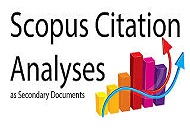Analisis Rasch pada Skala Efikasi Diri Akademik Praktikum Konseling
DOI:
https://doi.org/10.33394/jk.v6i1.2455Keywords:
Rasch Analisys, Academic Self Effication Scale, Individual Counseling Practicum.Abstract
This study aims to analyze the academic self-efficacy scale at counseling practicum up to the item and item level. The method in this study uses a quantitative method, aimed at 18 undergraduate students of the fifth semester guidance and counseling study program at Nusantara University PGRI Kediri. Data collection techniques in this study were in the form of a scale developed by researchers, namely the academic self-efficacy scale of counseling practicum. Analysis of the data used is the Rasch analysis which aims to provide overall information about the quality of student response patterns and quality on the academic self-efficacy scale of counseling practicum. The result of the analysis showed that were 27 items of counseling practicum academic self-efficacy scale items that were declared valid and reliable, along have been validated by three experts. The item separation value of 3,29 is rounded to 3, meaning that there are three types of items on the academic self-efficacy scale in counseling practice, namely: (1) difficult academic self-efficacy scale items, (2) medium academic self-efficacy scale items, (3) easy academic self-efficacy scale items.
References
Ardiyanti, D., Psikologi, F., & Ahmad, U. (2016). Aplikasi Model Rasch pada Pengembangan Skala Efikasi Diri dalam Pengambilan Keputusan Karier Siswa. 43, 248–263. https://journal.ugm.ac.id/jpsi/article/view/17801
Bandura (1997) Self-Efficacy-The-Exercise-of-Control.pdf. (n.d.).
Bandura, A. (1977). Social Learning Theory. Prentice Hall.
Cervone, D. (2000). Thinking About Self-Efficacy. 24(1), 30–56. https://journals.sagepub.com/doi/abs/10.1177/0145445500241002
Christiana, R. (2018). Keefektifan Peer Modeling untuk Meningkatkan Efikasi Diri Akademik Mahasiswa dalam Menguasai Keterampilan Berbahasa Inggris. Hibualamo, 2(2), 61–65. http://journal.unhena.ac.id/index.php/HibSos/article/view/70/58
Johnson, A. L. (2017). Exploration of factors affecting the self-efficacy of Asynchronous online learners. 1–219.
Joshi, A., Kale, S., Chandel, S., & Pal, D. (2015). Likert Scale: Explored and Explained. British Journal of Applied Science & Technology, 7(4), 396–403. https://doi.org/10.9734/bjast/2015/14975
Muhammad, U., Ratih, C., & Akhmad, S. (2019). the Visionary Leadership Strategy in Advancing Educational Institutions. Erudio Journal of Educational Innovation, 6(2), 206–215. https://doi.org/10.18551/erudio.6-2.7
Rustika, I, M. (2016). Efikasi Diri: Tinjauan Teori Albert Bandura. Buletin Psikologi, 20(1–2), 18–25. https://doi.org/10.22146/bpsi.11945
Schunk, D. H., & Pajares, F. (n.d.). Development of Academic Self-Efficacy 1. 1446, 1–27. https://www.sciencedirect.com/science/article/pii/B9780127500539500036
Sumintono, B & Widhiarso, W. (2014). Aplikasi Model Rasch untuk Penelitian Ilmu-Ilmu Sosial. Trim Komunikata.
Sumintono, B & Widhiarso, W. (2015). Aplikasi Permodelan Rasch pada Assessment Pendidikan. Trim Komunikata.
Sumintono, B. (2018). Rasch Model Measurements as Tools in Assesment for Learning. https://doi.org/10.2991/icei-17.2018.11
Tirpak, D. M., & Schlosser, L. Z. (2015). Relationship between self-efficacy and counseling attitudes among first-year college students. Journal of College Counseling, 18(3), 209–221. https://doi.org/10.1002/jocc.12015
Tsai, C., Chaichanasakul, A., Zhao, R., Flores, L. Y., & Lopez, S. J. (2014). Development and Validation of the Strengths Self-Efficacy Scale (SSES). 22(2), 221–232. https://doi.org/10.1177/1069072713493761
Downloads
Published
How to Cite
Issue
Section
Citation Check
License
License and Publishing AgreementIn submitting the manuscript to the journal, the authors certify that:
- They are authorized by their co-authors to enter into these arrangements.
- The work described has not been formally published before, except in the form of an abstract or as part of a published lecture, review, thesis, or overlay journal.
- That it is not under consideration for publication elsewhere,
- That its publication has been approved by all the author(s) and by the responsible authorities – tacitly or explicitly – of the institutes where the work has been carried out.
- They secure the right to reproduce any material that has already been published or copyrighted elsewhere.
- They agree to the following license and publishing agreement.
Authors who publish with JK agree to the following terms:
- Authors retain copyright and grant the journal right of first publication with the work simultaneously licensed under a Creative Commons Attribution License (CC BY-SA 4.0) that allows others to share the work with an acknowledgment of the work's authorship and initial publication in this journal.Â
- Authors are able to enter into separate, additional contractual arrangements for the non-exclusive distribution of the journal's published version of the work (e.g., post it to an institutional repository or publish it in a book), with an acknowledgment of its initial publication in this journal.
- Authors are permitted and encouraged to post their work online (e.g., in institutional repositories or on their website) prior to and during the submission process, as it can lead to productive exchanges, as well as earlier and greater citation of published work.
- Open Data Commons Attribution License, http://www.opendatacommons.org/licenses/by/1.0/ (default)

This work is licensed under a Creative Commons Attribution-ShareAlike 4.0 International License.








